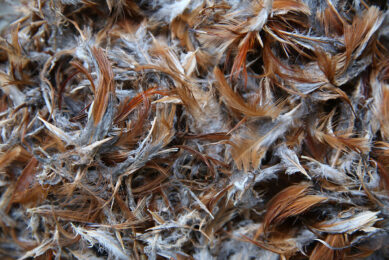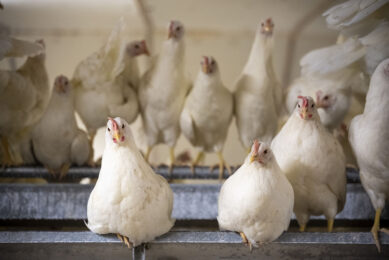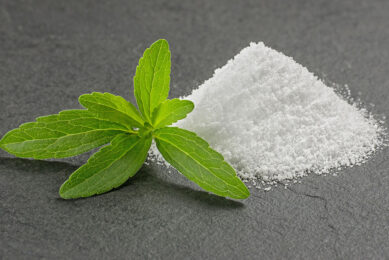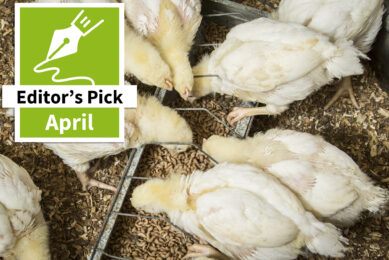Research: Feed additives to control Necrotic Enteritis
Recent experiments show that poultry feeds containing organic acids and medium-chain fatty acids can have anti-clostridium effects in broiler chickens, which may help to control Necrotic Enteritis.
Necrotic enteritis (NE) in broiler chickens is caused by Clostridium perfringens. This disease has a large negative impact on the health of broilers and therefore on the profitability of commercial broiler operations.After the ban on antimicrobial growth promoters (AGPs), it is expected that incidence of NE will increase.
Organic acids (OA) have been used for decades due to their preservative (flora modulating) effects in feed and subsequently in the first parts of the gastro-intestinal tract. Medium-chain fatty acids (MCFA) have recently caught scientific interest due to their antibacterial effects.
In this research a product combining organic acids (formic, acetic, propionic, and sorbic acid) and medium-chain fatty acids (caprylic, and capric acid) was tested. In vitro research had already indicated a strong anti-clostridium effect from this product. The next step was to test the effect of this product in vivo.
The research team used an experimental model with a two-step infection, first with Eimeria challenge and then with Clostridium perfringens. The animal performance and intestinal NE lesion score were measured. The hypothesis was that the experimental product would improve these parameters compared to an infected control group without additives.
The trial group receieved Selacid Green Growth (produced by Selko Feed Additives). A medicated group with 50 g/ton of growth promoter Bacitracin Methylene Disalicylate (BMD) was also tested.
To read the full article with trial setup and results go HERE
Join 26,000+ subscribers
Subscribe to our newsletter to stay updated about all the need-to-know content in the feed sector, three times a week. Beheer
Beheer









 WP Admin
WP Admin  Bewerk bericht
Bewerk bericht